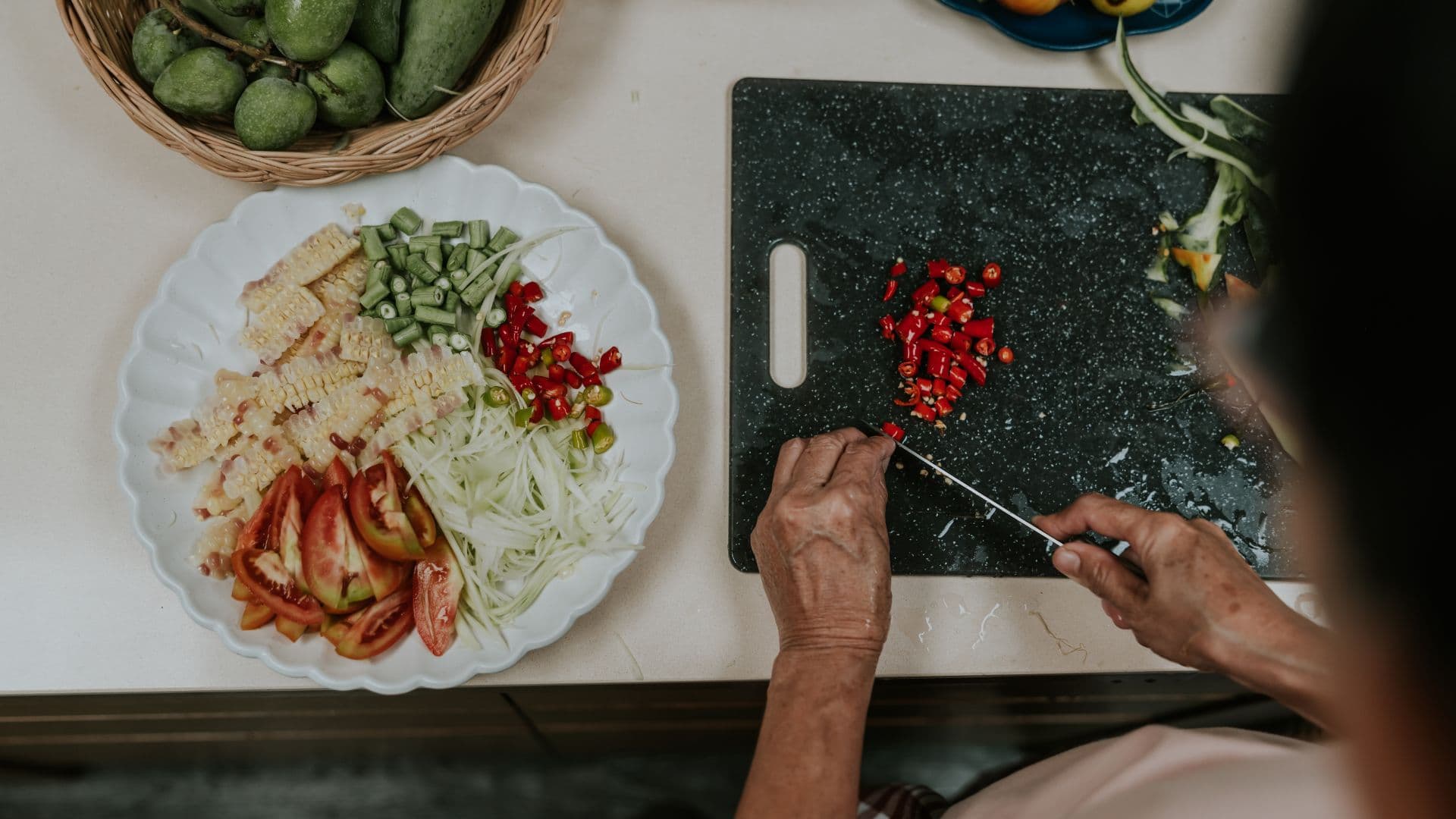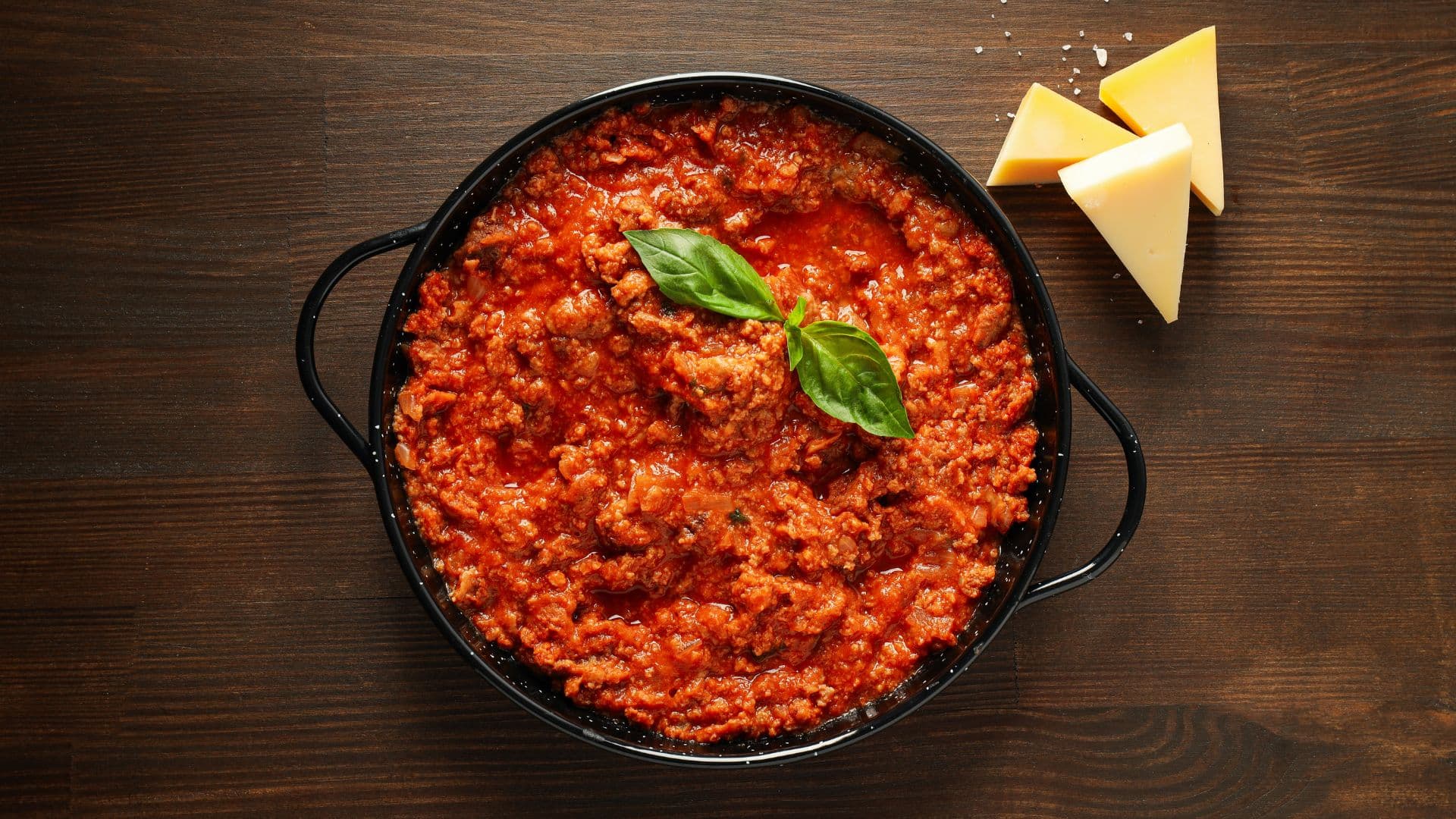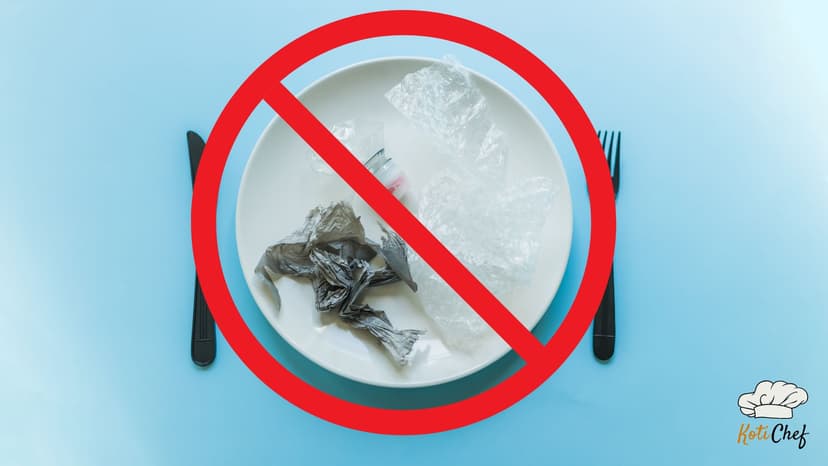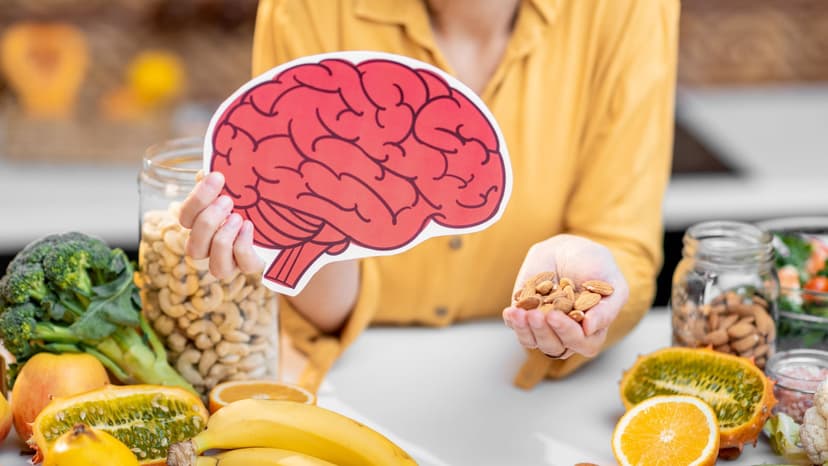Jacques Pepin - Mastering the Art of Cooking Through Life and Experience
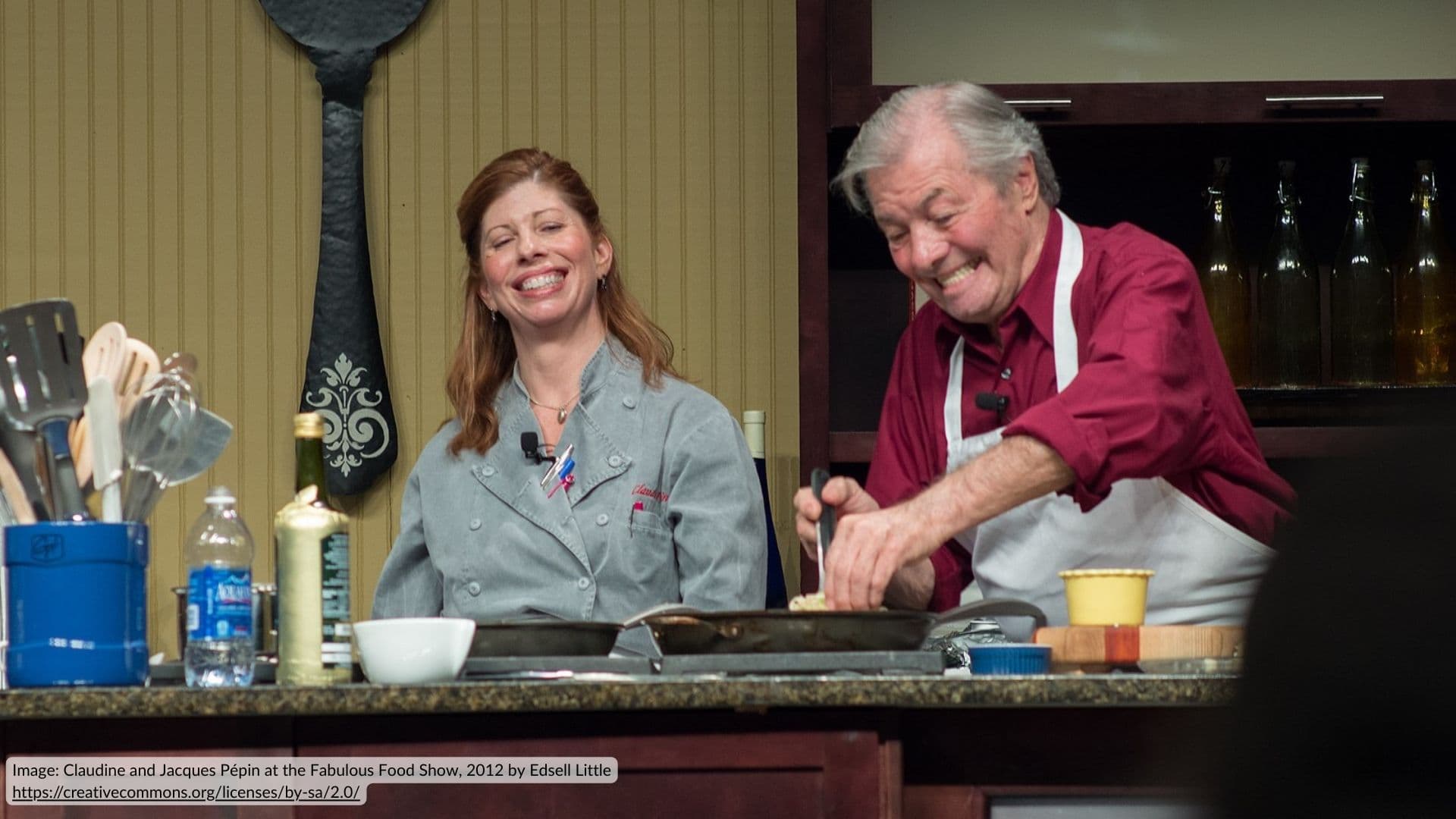
In your kitchen right now, there's likely a stack of cookbooks or a phone full of recipes promising culinary perfection if only you follow their precise instructions. Yet despite all these resources, many home cooks still feel uncertain, anxious, and constrained when cooking without a detailed recipe. What's missing isn't more recipes – it's the fundamental understanding that allows for true kitchen confidence.
This is where Jacques Pepin's approach to cooking offers timeless wisdom. In a world increasingly dominated by recipe apps and meal kits, Pepin's philosophy stands as a reminder that true culinary mastery comes not from following instructions, but from understanding food at a fundamental level. One of the most influential figures in modern culinary history, Pepin's journey from humble beginnings to culinary greatness illustrates principles that can transform how you approach cooking every day.
Childhood and Introduction to Food#
Jacques Pepin was born in 1935 and had what many would consider arather rough start in life. Living in France, his childhood was framed by the onset of World War 2. But it wasn't only the war that made life rough. People in the early 1900's were incredibly poor by modern standards, even in developed countries like France. This poverty, however, fostered in Pepin a deep and necessary connection with nature as a direct source of sustenance. Back in those days, nature was for more than just being in or looking at. It was also a source of food.
Pepin developed much of his relationship with food during his childhood, by hunting and gathering whatever his surroundings had. Frogs, snails, small fish, mushrooms and herbs directly from nature fed him. He roamed around the countryside, stealing grapes, cherries and other fruits straight from the farmers' yards.
His connection to food didn't just come from finding food in nature. His mother had a restaurant. His father was a wine expert and a passionate mushroom collector. His whole childhood was filled with nature and fresh foods harvested from it. This was complemented by a family and culture that celebrated food. These were the beginnings to a life that created one of the great chefs. Already by the age of 13, Jacques knew what he wanted to become: a chef.
However, the upbringing isn't everything for becoming a chef. Despite the same upbringing, his brother wanted nothing to do with kitchens. So don't be discouraged if your childhood was different. It's not destiny. Your interests and will to learn matter more than your childhood in your own culinary journey.
Learning to Cook by Instinct#
Pepin's childhood experiences with food became the foundation upon which he would build his professional career. He started at a remarkably young age. He was guided by mentors who reinforced his natural inclinations toward sensory-based cooking.
Pepin started working in a kitchen from a young age, much before he even turned 18. One of Pepin's early mentors taught him what would become the foundation of his cooking philosophy. In his autobiography, Pepin describes a formative experience at a countryside restaurant in France where this mentor shaped his approach to cooking.: "Recipes were immaterial and in any case non-existent. He wanted me to learn how to cook by using my senses, rather than by following written or verbal instructions. Sight, feel, hearing and smell taught me about food."
That whole quote is exactly what KotiChef is about. Cooking like a chef requires presence, understanding of ingredients, relying on your senses. This is what it's all about. Not rigid recipes, but presence of mind and body, focused on the craft of creating delicious food.
CHEF'S LESSON: True cooking mastery comes from training your senses, not following recipes. When you understand how ingredients behave and react to different techniques, you can cook with confidence and creativity. This sensory education is the foundation of becoming a chef rather than just a cook.
The Skills Developed in Traditional French Kitchens#
Pepin's training followed the traditional French 'brigade de cuisine' system, which differs significantly from modern American approaches. At the prestigious Plaza Athenee, where Pepin worked early in his career, the kitchen was organized into specialized stations – vegetables, sauces, fish, pastries, and more. Each station was led by an experienced chef.
Unlike today's American kitchens where cooks often specialize, Pepin and other young 'commis' (apprentice chefs) rotated through all stations. This rotation transformed them into culinary generalists with comprehensive skills. Their education relied on observation and sensory development – watching, tasting, and feeling – rather than following written recipes or procedures. This holistic approach ensured every chef understood all aspects of cooking, from basic preparation to sophisticated techniques.
Throughout his autobiography , Pepin lays out memories from his experiences in the kitchens where he worked. He describes them with such detail that it's somewhat difficult to believe that's actually how things were. Nevertheless, it's less important if the details are real. What matters is the picture he's painting with his words.
One of the things Pepin loved to talk about in his autobiography was the chaos and speed in which professional kitchens operated. The chefs and cooks rely on a crucial tactic called "mise en place", which means "everything in its place" - a pre-preparation system to deal with the chaos and speed surrounding them. It's also a crucial tactic for you in your home kitchen. Preparing all ingredients before applying heat is the single best thing you can do to make sure you never need to panic or run around hopelessly in your kitchen.
KITCHEN WISDOM: "Mise en place" is perhaps the most important skill you can adopt from professional kitchens. By preparing and organizing all ingredients before cooking begins, you transform chaotic cooking into calm craftsmanship. This single habit will eliminate most cooking stress and mistakes in your home kitchen.
Check out our lesson on Mise en Place:
Confidence in Your Kitchen#
This rigorous training and exposure to multiple specialties didn't just build Pepin's skills—it ultimately fostered the confidence that would define his approach to cooking. Later on when Pepin had moved past his apprentice stage, he realized something that all chefs need more than anything: confidence. This is true not only for professional chefs, but also home chefs. You cannot unleash your creativity and find joy in cooking unless you believe in your skillset.
This is why I emphasize learning the fundamental skills, the science of cooking, ingredient knowledge, and techniques over just learning recipes. Pepin goes on to explain: "I and I alone decided on the ratio of potatoes to leeks in a soup, whether or not to strain it, whether or not to finish it with butter and cream. I could add chopped herbs to the mayonnaise for the fish if I chose to, or not. In short, I ran the show".
You too run the show in your kitchen. With the skills this platform aims to give you, you can create exactly the foods you and your loved ones love.
CONFIDENCE BUILDER: Developing culinary confidence comes from understanding fundamentals, not memorizing recipes. When you truly grasp cooking principles, you become the decision-maker who can adapt, adjust, and create without fear. This confidence transforms cooking from a chore into a creative expression.
From Kitchen to Military Service#
The confidence Pepin developed in professional kitchens would soon be tested in entirely unexpected circumstances when his career path took an abrupt turn. Like many others at that time, Pepin was drafted into the military.
Throughout history, militaries have recognized that food is not merely about sustenance but also critical for morale. The French navy was no exception, and so young Jacques found himself with a new employer. Through some good luck, he found himself stationed in Paris. He was able to continue his culinary profession and ended up as a personal chef to the then prime minister of France. His role in the French military required that he cook in some high-pressure situations. For example, he once cooked for top politicians during tense negotiations when France was on the verge of a military coup in the late 1950's. The confidence he had in his skills allowed him to perform flawlessly even under intense pressure.
This principle applies directly to your cooking life as well. When you develop fundamental skills and true understanding of cooking, you build the same kind of confidence that served Pepin during critical moments. With proper skill development, you'll find yourself calmly handling what once seemed stressful – whether it's preparing a holiday feast for judgmental in-laws, orchestrating a multi-course dinner party, or cooking an impressive first meal for a new partner. The pressure diminishes when your foundation is solid.
Adaptability: Finding Flavor in New Environments#
This experience serving under pressure and adapting to unexpected circumstances prepared Pepin for an even greater challenge: adapting his French culinary identity to American ingredients and tastes. Once Pepin reached America in the late 1950's, he started working once again in a new kitchen. It was also a French restaurant, but something was fundamentally different: the ingredients. Everything tasted different. Vegetables and fruit had less taste. So did meat, but it was more tender, and all the cuts were larger. Fish too missed the pungent flavors of the Mediterranean fish.
Pepin needed to improvise his recipes to get the flavors he wanted. He needed to change the seasoning he used. He needed to use different techniques to account for the difference in ingredients. You too will have to do the same in your own kitchen. Wherever you happen to live, you will not get the exact same ingredients as an authentic recipe might call for. Knowing how ingredients work and how techniques affect the final dish will help you get the results you want.
ADAPTATION PRINCIPLE: Ingredients vary by location, season, and availability. Rather than seeking "authentic" ingredients that may be unavailable, learn to adapt techniques and adjust seasonings to achieve your desired flavors with what's available. This flexibility is the mark of a true chef.
From White House to Fast Food#
As you might already guess, Pepin was successful as a chef even in the new country. He didn't really know the language, but he ended up cooking French food at the White House. However, it's not what he came to America for. Pepin wanted to learn the American ways, to cook American food, to expand his culinary skills and not just repeat what he already knew. Trying new things in the kitchen will make anyone a better chef. Pepin took it so far as to go work at a Howard Johnson's 1000-restaurant chain (the largest at the time) and grill burgers for a living.
What he found is that the cooks at the burger joint had the same approach as he had. They cooked with their senses, with a strong gut feeling, with an intimate understanding of the techniques and ingredients. They didn't rely on recipes. However, his task was ultimately to redesign the restaurant's menu. He needed to create dishes that could be reproduced with the exact same quality in any restaurant in the US.
The foods were to be precooked and frozen, then delivered to restaurants across the US. It turned out to be a gargantuan task. It involved stock pots the size of small swimming pools and recipes that counted carrots in hundreds of pounds.
Some foods worked out well, some not so well. He needed to design a menu that consisted of foods that could handle freezing and reheating. While Pepin was designing foods that could withstand industrial freezing and reheating, he learned valuable lessons about preservation techniques.
You can apply these same principles on a smaller scale for those busy weekdays when cooking from scratch isn't feasible. By preparing and freezing homemade meals, you maintain quality control while gaining convenience, and you'll avoid the temptation to pick up processed foods at the grocery store. You just have to understand that not all foods handle freezing and thawing well, so you need to experiment.
PRACTICAL PLANNING: Even the greatest chefs understand the value of prepared meals. Learn which dishes freeze well and make larger batches when you cook. This practice combines the quality of home cooking with the convenience of ready meals, saving you from unhealthy processed alternatives on busy days.
Family and Food: A Life-Long Connection#
While Pepin was reimagining commercial cooking for the masses, his personal life was also evolving in ways that would profoundly influence his relationship with food. When Pepin's daughter was just one year old, they found a common passion: cooking. She started by helping stir the pots when they were cooking. She also smelled and gave her opinions on the flavor. Imagine what this does to a young child and their relationship with food going forward.
And it's not only the relationship with food that improves - your relationship with your child will also deepen. You will spend active time together, enjoying the small things in life. Pepin's daughter ate the same foods as the adults did. She became familiar with sophisticated dishes like asparagus with hollandaise sauce at a very young age.
Too often, children are fed "easy foods" that have very little nutritional value. A growing child with a developing brain needs a varied diet just as much, if not more than an adult does. Eating a variety of foods from the beginning of life will also familiarize the child with a broad range of foods for the rest of their life.
FAMILY CULTIVATION: Cooking connects generations and builds lasting relationships. By involving children in the kitchen from an early age and offering them the same foods adults enjoy, you develop not just their palates but also their appreciation for food culture. These shared experiences create memories and skills that last a lifetime.
The Teaching Revelation: Techniques Over Recipes#
Pepin's experiences cooking with his family, especially his young daughter, revealed the joy of sharing culinary knowledge—a revelation that would become especially important after a life-changing accident. Life can change in an instant, and for Pepin, that instant came in the form of a devastating car crash. A little after his daughter was born, Jacques had an accident that changed his life. He almost died in that crash. He broke multiple bones throughout his body, and his arm was in such a bad shape it almost had to be amputated. This accident, while nearly fatal, became the catalyst for his transformation from chef to educator—a role that would ultimately define his legacy even more than his cooking.
Cooking long days in a professional kitchen was no longer an option, so Jacques turned to giving cooking lessons. These cooking lessons were mostly held in places like vineyards in California. There, Jacques had another chance to use his childhood skills of finding food in nature. This time it was snails from the roads around his accommodation. He used those snails in the cooking classes, as they were just the right type with great flavor. The students weren't super thrilled about cooking snails, but it is a traditional french food and so it belonged to the courses.
Just ask yourself, would you pick up snails from the road and eat them? If not, why not? What other foods are you blindly missing in your surroundings that you could use to make delicious meals?
The Fundamental Insight about Cooking Education#
When Pepin held his cooking classes, he quickly realized he had greatly overestimated how much the pupils understood about cooking techniques. Most really didn't have a clue, so it was difficult to actually teach any recipes and expect good results. His students needed to learn techniques much more than they needed to learn recipes. This is the same philosophy I take with KotiChef.
Take a look at our ragu recipe to see how this works in practice:
Pepin's cooking education wasn't limited to just cooking food. He was also adamant on teaching about cuisine and how it relates to the experience of being a human. Cultural texts are littered with references to food and Pepin wanted to examine and teach this through universities. He wanted to teach people about the place of food in human culture. This is a part of the reason why KotiChef also exists. Cooking is a fundamental part of the experience of being alive. It brings families together, it binds cultures together as it connects people together. Learning about food is not only about learning how to eat. It's about learning how to live. So it was for Pepin as well.
CULTURAL CONNECTION: Cooking transcends mere sustenance - it's a cultural, social, and even philosophical act. Understanding food's place in human experience connects you to traditions, memories, and shared humanity. This deeper connection makes cooking more meaningful than simply following instructions to produce calories.
Simplicity vs. Complexity of Food#
This recognition of cooking's cultural importance influenced how Pepin evolved his approach to food throughout his career. Pepin also travelled a lot during his time as a cooking educator. He encountered new cuisines and cultures. Through these encounters, he started to become somewhat disillusioned with traditional French cooking. He questioned its strict rules about how dishes are supposed to be prepared. He started to appreciate a simpler way of cooking - bringing out the best in ingredients with simple preparation and great technique.
During this time, Pepin also saw the rise of "new age cuisine." Dishes started to become more and more pretentious, as he would say. This further pushed Pepin towards simpler foods, prepared well, instead of more complex and intricate preparation. He believed it's better to remove, rather than add ingredients when aiming for a cohesive dish. This approach works much better in a home kitchen too. It's cheaper, easier, and less time-consuming to get great food from simple ingredients prepared well.
SIMPLICITY PRINCIPLE: Excellence often comes from restraint, not abundance. The best dishes let quality ingredients speak for themselves through proper technique, rather than hiding them under excessive complexity. Focus on perfecting simple preparations before pursuing elaborate compositions.
Home Cooking vs. Professional Cooking#
This recognition of simplicity's value naturally led Pepin to appreciate the distinct character of home cooking. While Pepin was teaching students about food, he quickly learned an important lesson. It's very different to cook professionally than it is to cook at home. Home cooks don't have access to the tools professional chefs use. Home cooks only need to please their friends and families, not random guests with a wide variety of preferences.
Pepin's realization about the difference between professional and home cooking mirrors my own journey with KotiChef. Unlike many of the online cooking education platforms, this platform is built by a nonprofessional. I have learned cooking at home using ingredients and equipment available at home. I've learned to cook foods that suit me and my loved ones, and I am here to pass this knowledge to other home cooks. Like Pepin, who adapted his professional knowledge for home cooks, I've developed this platform based on practical home cooking experience rather than professional kitchen training.
For me, cooking is as much about learning as it is about anything. I will continue to learn, create new lessons, and create new recipes for home cooks. This is a cooking education platform of the home cooks, by a home cook, for the home cooks.
AUTHENTIC APPROACH: Professional kitchen techniques must be translated for home cooks, not just copied. By learning from someone who cooks in a home environment with standard equipment, you gain directly applicable skills rather than watered-down professional methods that don't translate to everyday cooking.
Pepin has taken a similar approach as KotiChef does, through a book called "La Technique". If you prefer to learn from a professional, it's a good book to start from. It catalogues some 200 fundamental techniques used in cooking, and teaches them as part of recipes, much like this platform.
Creating the Perfect Kitchen Environment#
This recognition of home cooking's distinct character naturally extended to Pepin's ideas about the physical environment where cooking happens. Pepin, like others who really appreciate food understand the value of a great kitchen. There's almost nothing more counterproductive to a lifestyle of plentiful home cooking than a kitchen that just doesn't work.
Here's where Pepin and I see eye-to-eye. A kitchen deserves a central spot in a home. You should have easy access from the living spaces to the kitchen. Open plan is best. It allows you to be with your family when you're cooking, instead of having to seclude yourself in a closed space. This is what brings cooking into your daily life.
Furthermore, your kitchen should be easy and comfortable. Cooking surfaces should be at the correct height. You need enough space on countertops. Important equipment and utensils should be at easy-to-reach places. Reduce clutter. Gimmicky gadgets have no place in a functioning kitchen.
ENVIRONMENT MATTERS: Your kitchen's design directly impacts your cooking experience. Create a functional space with thoughtfully organized tools rather than accumulated gadgets. A well-designed kitchen becomes an inviting creative space rather than a cluttered work zone, making daily cooking a pleasure rather than a chore.
Creating Your Own Style as the Ultimate Goal#
A thoughtfully designed kitchen creates the physical foundation for the ultimate expression of cooking: developing your own distinctive style. Much like any master in any craft, Jacques was never satisfied with the existing styles of cooking. Toward the end of his life, his style evolved to something unique to himself. He mixed traditional French cooking with more modern cuisine nouvelle, and those with American styles. He even took inspiration from Asian and African traditions he encountered during his travels.
In the end, it was creating and following his own style that made cooking such a joy for Pepin. He had intimate knowledge of a vast range of ingredients. He knew the techniques better than almost anyone. That's why he was so creative and successful in the kitchen.
Much like Pepin, you too should learn to create your own style. Build upon fundamental kitchen techniques and ingredient knowledge. Following recipes will never give you the ease, fun, and lifelong fascination with food and cooking that comes from intimate kitchen knowledge.
PERSONAL EVOLUTION: The ultimate goal isn't to cook like Jacques Pepin - it's to cook like yourself. Use techniques from various traditions as foundations, but develop your own signature approach based on your preferences, available ingredients, and cultural context. This personal style is what makes cooking a lifelong journey of discovery rather than simple reproduction.
Pepin's journey from French kitchens to American homes reminds us that cooking is not about rigidly following traditions, but about adaptation, personal expression, and connection. As you develop your own kitchen confidence through KotiChef, remember Pepin's ultimate lesson: the best techniques are those that free you to create your own culinary voice.
Core Cooking Principles I Learned from Jacques Pepin#
Throughout his remarkable journey from apprentice to master chef to culinary educator, Jacques Pepin demonstrated consistent approaches and philosophies about cooking. While he may not have explicitly listed these as his guiding principles, these are the key lessons I've distilled from studying his life and work. These insights form what I believe to be the essence of his culinary philosophy and offer valuable guidance for home cooks at any level:
Cook with Your Senses, Not Just Recipes Trust your eyes, nose, ears, and hands to guide your cooking. Learn to recognize when food is properly cooked by its appearance, aroma, sound, and texture rather than relying solely on timers and written instructions.
Master Techniques Before Recipes Understand fundamental techniques like knife skills, heat control, and seasoning as the building blocks of all cooking. Once you master these, you can approach any recipe with confidence or create dishes without recipes entirely.
Preparation Prevents Problems Organize your ingredients and workspace before cooking begins ("mise en place"). This simple practice eliminates stress, prevents mistakes, and allows you to focus on the craft of cooking rather than scrambling for ingredients.
Simplicity Reveals Quality Let excellent ingredients speak for themselves through proper technique rather than masking them with excessive complexity. Often, removing an ingredient improves a dish more than adding one.
Adapt to Your Environment Work with ingredients available to you rather than pursuing "authenticity" at all costs. Understanding how to adapt techniques and adjust seasonings to different ingredients is the mark of a true chef.
Cultivate Kitchen Confidence Take command of your cooking by making deliberate decisions about every aspect of a dish. This confidence comes from understanding cooking principles, not from following directions.
Connect Cooking to Life Recognize that cooking transcends mere sustenance. It's a cultural practice that connects us to traditions, builds relationships, and enriches daily life. Cooking well is part of living well.
Develop Your Personal Style After learning from various traditions, develop your own signature approach based on your preferences, available ingredients, and cultural context. Your unique cooking voice is the ultimate expression of culinary mastery.
These principles represent the essence of Pepin's approach to cooking - an approach that values understanding over instruction, adaptability over rigidity, and personal expression over perfect replication. By integrating these principles into your own cooking journey, you'll find the same joy and freedom in the kitchen that made Pepin one of the world's most beloved culinary figures.
As you continue your own culinary journey, consider which of Pepin's principles resonates most with your current cooking challenges. Perhaps it's developing trust in your senses rather than timers, focusing on mastering a particular technique, or creating a more efficient kitchen space. The path to becoming a confident, creative cook begins with a single step – choosing one principle to practice intentionally in your next meal.
Through KotiChef, you'll find lessons specifically designed around these fundamental principles. Rather than simply providing more recipes to follow, each lesson builds your understanding of ingredients, techniques, and the science behind great cooking. By approaching cooking as Pepin did – as a blend of craftsmanship, personal expression, and joyful creation – you'll find yourself not just making better meals, but experiencing the deep satisfaction that comes from true culinary confidence.
Your cooking journey isn't about becoming Jacques Pepin – it's about becoming the best version of yourself in the kitchen, creating food that expresses your tastes, values, and creativity. The principles that guided Pepin's remarkable life can serve as signposts on your own unique path to culinary mastery.
This profile piece is based on Jacques Pepin's autobiography: The Apprentice - My Life in the Kitchen.
Tagged with:
About the Author

Nico Nyberg
Founder of KotiChef
KotiChef grew from my own struggle to cook confidently without recipes. After learning cooking fundamentals the hard way, I became passionate about the central role food plays in our wellbeing. Now I'm building KotiChef to share these insights in practical, easy-to-understand ways.
